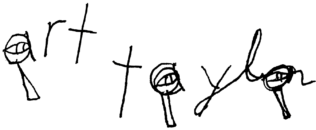Last week in this spot, Brandon Wicks proved himself a fine interviewer, chatting with William Wright, series editor of The Southern Poetry Anthology. Here he takes up his pen again for reviewing, turning a sharp eye toward a terrific collection of fresh takes on fairy tales from around the world.
My Mother She Killed Me, My Father He Ate Me: Forty New Fairy Tales
Edited by Kate Bernheimer
Penguin Books
Reviewed by Brandon Wicks
 Most savvy readers know that fairy tales are for adults. We know that the Brothers Grimm were just that—grim—filling their stories with pedophagia and regicide. We know the vein of political allegory that can be traced through L. Frank Baum’s The Wonderful Wizard of Oz. We also know that the modern tales of magic—the J.K. Rowlings, the Philip Pullmans, the J.R.R. Tolkiens—are enjoyed as much by parents as by children, if not more so. However, decades of the Disney princess-factory and a dozen clichés about happy endings still push popular opinion to misconstrue the form as kidstuff. With the new anthology, My Mother She Killed Me, My Father He Ate Me: Forty New Fairy Tales, editor Kate Bernheimer seeks to set the record straight and reassert the fairy tale’s rightful prominence in the cultural imagination.
Most savvy readers know that fairy tales are for adults. We know that the Brothers Grimm were just that—grim—filling their stories with pedophagia and regicide. We know the vein of political allegory that can be traced through L. Frank Baum’s The Wonderful Wizard of Oz. We also know that the modern tales of magic—the J.K. Rowlings, the Philip Pullmans, the J.R.R. Tolkiens—are enjoyed as much by parents as by children, if not more so. However, decades of the Disney princess-factory and a dozen clichés about happy endings still push popular opinion to misconstrue the form as kidstuff. With the new anthology, My Mother She Killed Me, My Father He Ate Me: Forty New Fairy Tales, editor Kate Bernheimer seeks to set the record straight and reassert the fairy tale’s rightful prominence in the cultural imagination.
The collection is impressive, both in its range of stories and contributing authors. Bernheimer brings a cross-section of literary muscle: included are tales by such heavy-hitters as Michael Cunningham, Joyce Carol Oates, and John Updike, a long list of rising notables like Aimee Bender and Katherine Vaz, and international favorites such as Ludmilla Petrushevskaya and Neil Gaiman. The variety of authors reflects the breadth of source material. Each story is drawn from an original tale, ranging from familiar ones by the Brothers Grimm and Hans Christian Anderson, to folktales from Vietnam and Mexico, to the more contemporary fables of Italo Calvino and even Walt Disney. And while it might be odd to praise a table of contents, Bernheimer has organized a thing of beauty. Each entry names the fairy tale from which the story is derived, the country and author of origin, and even the opening lines—bringing helpful context to each story and inviting the reader to graze through the book, guided by her own proclivities.
The stories found within My Mother She Killed Me, My Father He Ate Me could be divided into stylistic camps. Many are fantastical, as one would expect. In “A Day in the Life of Half of Rumplestiltskin,” Kevin Brockmeier explores the lesser known ending—in which Rumplestiltskin splits himself, vertically, in his rage—after the original fairy tale has ended. But many are also realistic—inhabited not by witches, but by restaurant chefs and single mothers, by characters who have strayed in the dark wood of their everyday lives a little too long, who only survive by their own resourceful acumen and luck.
Regardless of style, the stories remain remarkably cohesive. Each in its own way revels in a malevolent glee while simultaneously invoking a sense of childlike courage. Each embodies a world where wondrous and horrific moments are not so much commonplace, but accepted as the immutable facts of one’s life. In Shelley Jackson’s “The Swan Brothers” a woman with silver hands flirts with the main character while explaining her prosthesis:
‘I was trying to jump a freight train with some friends… They made it, I didn’t.’
‘Really?’
‘No, my father cut them off with an axe. Otherwise, he said, the devil would wrap his tail around his, my father’s, neck and drag him away.’
‘Sucks for you.’
‘Yep.’
The subtext is clear and can be applied to all the stories: It doesn’t matter how the absurd happens, but simply that it has happened, and that the characters are dealing with their circumstances as best they can.
If there is a weakness to the collection, it is that a few stories fail to meet the challenge set by the others, presenting simple rehashes of the originals without inviting a newer perspective. But these are quickly forgotten. Luckily, the vast majority are fully re-imagined, finding the contemporary truth in (mostly) antiquated stories. A few high points in the collection include—but are by no means limited to—Francine Prose’s “Hansel and Gretel,” “The Erlking” by Sarah Shun-Lien Bynum, Kelly Link’s “Catskin,” and Kim Addonizio’s “Ever After.”
For a modern readership better acquainted with magical realism and more accepting of the sophistication that fantasy can provide, an anthology of fairy tales should be no hard sell. However, Kate Bernheimer does more than sell a good read. My Mother She Killed Me, My Father He Ate Me reaffirms the relevance and maturity of fairy tales within contemporary literature, shaping the ongoing dialogue between “violence, suffering, and beauty.” To this end, perhaps fairy tales really are for children. Not because of their supposed innocence or lack of sophistication, but because children best understand—powerless as they are in the face of households, governments, and gods—the precarious nature of the world in which live.






Pingback: My Father He Ate Me (And then the shiny red apple…) « Books and Bowel Movements
Pingback: In which there are birthdays, a book, and a ramble on creating « Silk-spun